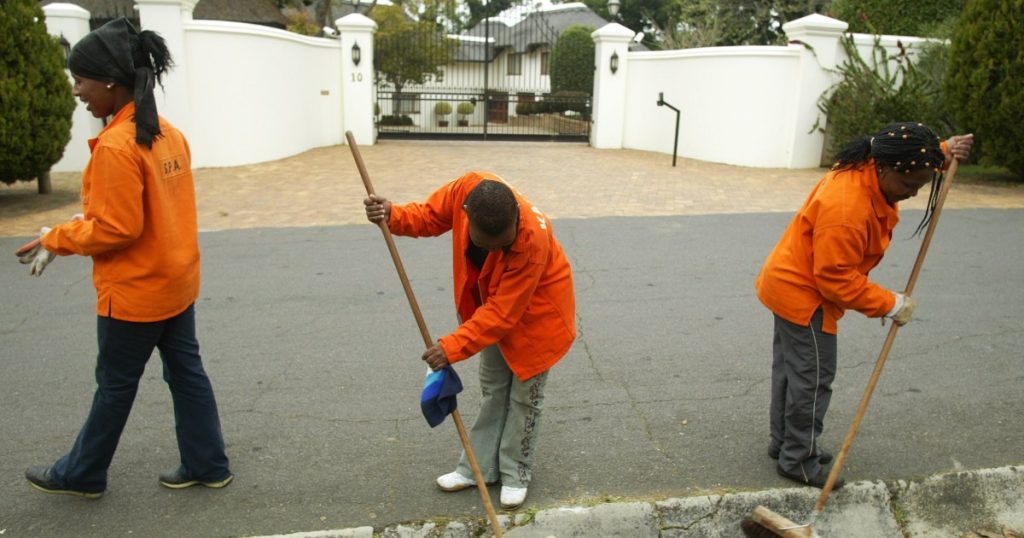Dee Lackay, a personal trainer, left Johannesburg for Cape Town due to safety concerns and lack of service delivery. He opted to move to the Western Cape, governed by the opposition party, the Democratic Alliance, where he now feels safer in a suburb surrounded by beauty and amenities. However, this version of Cape Town is not accessible to all, especially those in neglected townships where basic services are lacking. Some activists argue that the city is divided into a tale of two cities, one for the affluent and one for the poor.
Gugulethu, a Black majority township in Cape Town, starkly contrasts the wealthier areas, highlighting the inequalities present in the city. Activists question who truly benefits from Cape Town’s services, pointing out the challenges faced by working-class neighborhoods on the Cape Flats like joblessness, overcrowding, and high crime rates. Despite the DA’s claims of being the best-run city in South Africa, residents in neglected communities feel abandoned by city leaders and continue to struggle for basic services.
Political analyst Levy Ndou emphasized the disparity between the city center and townships in Cape Town, highlighting the need for resources to be more evenly distributed to address these inequities. While the DA may boast of the city’s successes in certain areas, the reality for many residents living in townships like Gugulethu and Mitchells Plain is far different, indicating that things are not working for everyone in the city. Apartheid’s legacy of economic inequality continues to shape the spatial dynamics of Cape Town.
As the DA and ANC campaign for the upcoming elections in Cape Town, both parties are focusing on different demographics. While the DA touts the Western Cape as the best-run province in the country, critics argue that it does not work for everyone, especially those living in neglected townships. The ANC, on the other hand, focuses on poorer, Black working-class areas where they have support, highlighting the neglect experienced by residents in these neighborhoods. With both parties making promises to improve service delivery and create opportunities for residents, the election outcome remains uncertain.
While some residents, like Lackay, have found a better life in Cape Town, concerns about racism, segregation, and class issues persist. Lackay, a male of color, experiences mistreatment in white areas, underscoring the challenges faced by non-white individuals living in affluent suburbs. As discussions around equality and service delivery continue in the city, it is clear that the journey towards a truly inclusive and equitable Cape Town is far from over.













